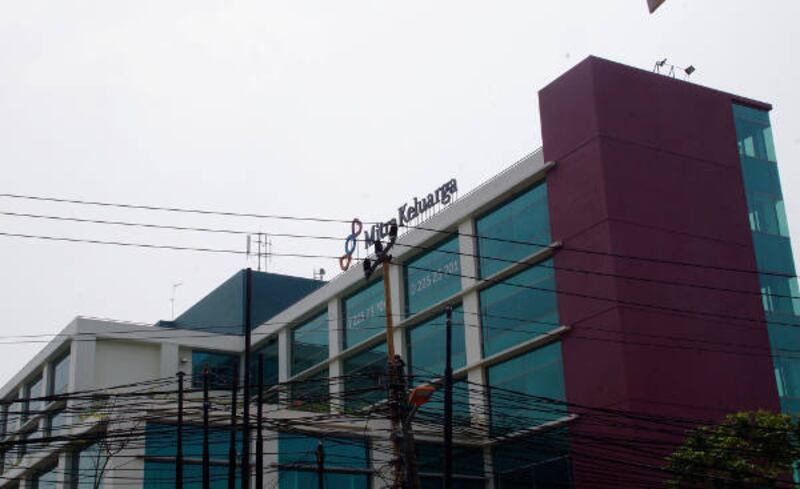The death of a 4-month-old turned away by a private hospital last week because her parents could not afford treatment highlights the need for the government to ensure that health-care facilities follow national regulations, Indonesia’s child protection commission said Monday.
Baby girl Tiara Deborah Simanjorang could have been saved had the Mitra Keluarga Hospital Kalideres in West Jakarta obeyed the law and admitted her for specialized treatment, the commission (KPAI) determined.
Indonesian law stipulates that every patient is entitled to humane, fair, honest and non-discriminatory service, the KPAI said. The law also states that each hospital is obligated to provide facilities and services for poor and needy patients.
“So, there should be improvements in the form of periodic, ongoing controls and assurances that all hospitals implement the law,” KPAI Chairman Susanto told BenarNews on Monday.
He expressed hope that Deborah’s case would swing efforts to improve the nation’s health system.
“This could be an entrance for overall improvement,” he said.
Deborah’s case shows that some health service providers have not fully considered humanitarian concerns, especially child protection, even though the law requires such coverage, Susanto said.
Arist Merdeka Sirait, chairman of the National Commission for Child Protection, said the case reflected a growing critical lack of compassion in Indonesia’s health-care system.
“Hospitals are no longer an institution to save people, but have turned into business-oriented and economic institutions,” Arist told BenarNews.
Hospital demanded full payment
Deborah had suffered from respiratory distress on Sept. 3 and was taken to Mitra Keluarga Hospital, according to her parents, Henny Silalahi and Rudianto Simajorang.
The couple carried the government’s BPJS-Health insurance card. But their baby died the same day after the hospital refused to treat her because they could not afford a payment of 11 million rupiah (U.S. $835), even though they had promised to pay 5 million rupiah ($379.19) in advance and the rest after treatment.
Hospital officials said the baby could not be treated at the Pediatric Intensive Care Unit (PICU) until receiving full payment, adding it did not accept BPJS-Health cards, according to the couple.
Many hospital administrators are not aware that all emergency treatment costs at all hospitals are covered by BPJS-Health, Jakarta Health Office chief Koesmedi Priharto said.
“For emergency services, even though the hospital has not cooperated with BPJS Health, BPJS still bears the (cost),” Koesmedi said, according to Kompas.com.
Activist Birgaldo Sinaga highlighted the girl’s death on his Facebook page on Sept. 8, and is serving as a lawyer for her family.
Health officer, hospital official speak
On Monday, Koesmedi told reporters that his office had collected information from Mitra Keluarga Hospital. The hospital’s director, Fransisca Dewi, was at the news conference.
“There is negligence from the hospital,” Koesmedi said in a statement released by his office.
Koesmadi did not release details of the alleged negligence nor potential sanctions against the hospital, adding that his office will continue its investigation.
“We will also want to hear from the patient’s side (Deborah’s family),” Koesmedi said.

Mitra Keluarga Kalideres Hospital in West Jakarta, Sept. 11, 2017. ( Arie Firdaus/BenarNews)
Fransisca explained why the baby was not admitted to the PICU unit, despite instructions from her doctor.
“We recognize that equipment in special units such as PICU are expensive, so we need to think about the effectiveness and efficiency of the patient, especially since the treatment in a special unit takes a long time,” she said, adding that the hospital would cooperate with BPJS.
Having lost their child, the couple said they did not wish to seek financial compensation.
“We only want the hospital to admit its mistake and apologize,” lawyer Birgaldo said.
The apology, according to Henny, is to ensure that other hospitals do not make the same mistake.
“I am speaking out to prevent other children from having to experience the same as my child,” Henny told reporters at the KPAI office.
